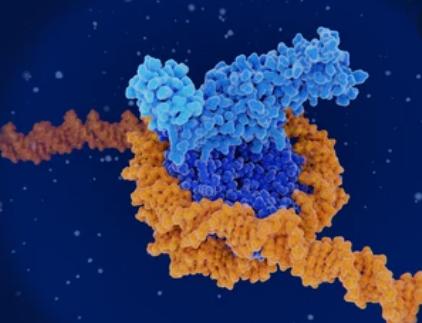
- Home
- PTMs Proteomics
- Proteomics Analysis of Methylation

Protein methylation is one of the best-known post-translational protein modifications (PTMs). Methylation can occur at lysine (Lys) and arginine (Arg) residues of proteins and plays a regulatory role in many essential cellular processes from gene transcription to signal transduction. Based on advanced platforms and years of experience in PTM analysis, Creative Proteomics is committed to providing our customers with optimal customized services and solutions to meet the specific needs of their projects. Here, we use efficient enrichment strategies to enrich the methylated peptides and LC-MS/MS-based method to analyze enriched peptides, enabling large-scale enrichment and identification of methylated proteins.
As a common and important PTM, protein methylation mostly occurs on Arg and Lys residues, including monomethyl Arg; asymmetric dimethyl Arg; and monomethyl, dimethyl, and trimethyl Lys. Arg methylation has been reported to regulate a range of cellular processes, such as gene transcription, RNA processing, and protein transport. While Lys methylation is known to regulate histone function and takes part in the epigenetic regulation of gene transcription. Moreover, methylation can occur on histones and non-histone proteins. So far, many protein methyltransferases and demethylases have been discovered, and other enzymes are likely to be found. It is reported that dysregulated protein methylation is commonly associated with cancer, cardiovascular, pulmonary diseases, neurodegeneration, and other disorders.
Histone methylation can also affect gene expression by altering the physical properties of chromatin proteins, and the activation and silencing of gene expression are closely related to the methylation sites where Lys and Arg occur and their degree of methylation. In addition to methylation on histones, methylation of Lys and Arg residues on non-histone proteins is also an important regulatory factor in cell biological processes. Creative Proteomics provides fast and efficient protein methylation analysis services with a professional and high-throughput LC-MS/MS platform. Specifically, our services include the following lists:
Our sample preparation consists of two main parts, namely protein extraction and digestion. We accept a variety of samples such as protein extracts, cell samples, tissue samples, and microbial samples. It is necessary to note that please consult our technical staff before sending samples. Importantly, we will test the samples you provide before the official experiment.
To deal with the low abundance and low stoichiometry of many methylated molecules, we provide efficient enrichment strategies to enrich methylated peptides prior to methylation identification. Among various enrichment techniques, antibody-based immunoaffinity purification and hydrophilic interaction chromatography (HILIC) are used. Immunoaffinity purification methods using highly specific antibodies against monomethyl Arg; asymmetric dimethyl Arg; monomethyl, dimethyl, and trimethyl Lys are developed to better study protein methylation. And HILIC is a simple method that is not limited to peptide sequences or methylation types.
Large-scale identification and analysis of the enriched protein methylation are performed by LC−MS/MS followed by data analysis and bioinformatics analysis. Optimal protocols will be customized based on your project and sample type.
-MS data quality control.
-Histone and non-histone protein methylation identification.
-Methylation site identification and prediction.
-Methylated protein subcellular localization and functional annotation.
-Protein-protein interaction (PPI) network of proteins with altered methylation.

With the continuous development of MS, enrichment strategies, and bioinformatics, we are dedicated to offering precise and high-throughput quantitative proteomics methods to investigate and analyze methylated substrates and sites. More importantly, our customer service representatives are available 24 hours a day, 7 days a week. Please feel free to contact us for more details.
References
Our products and services are for research use only.